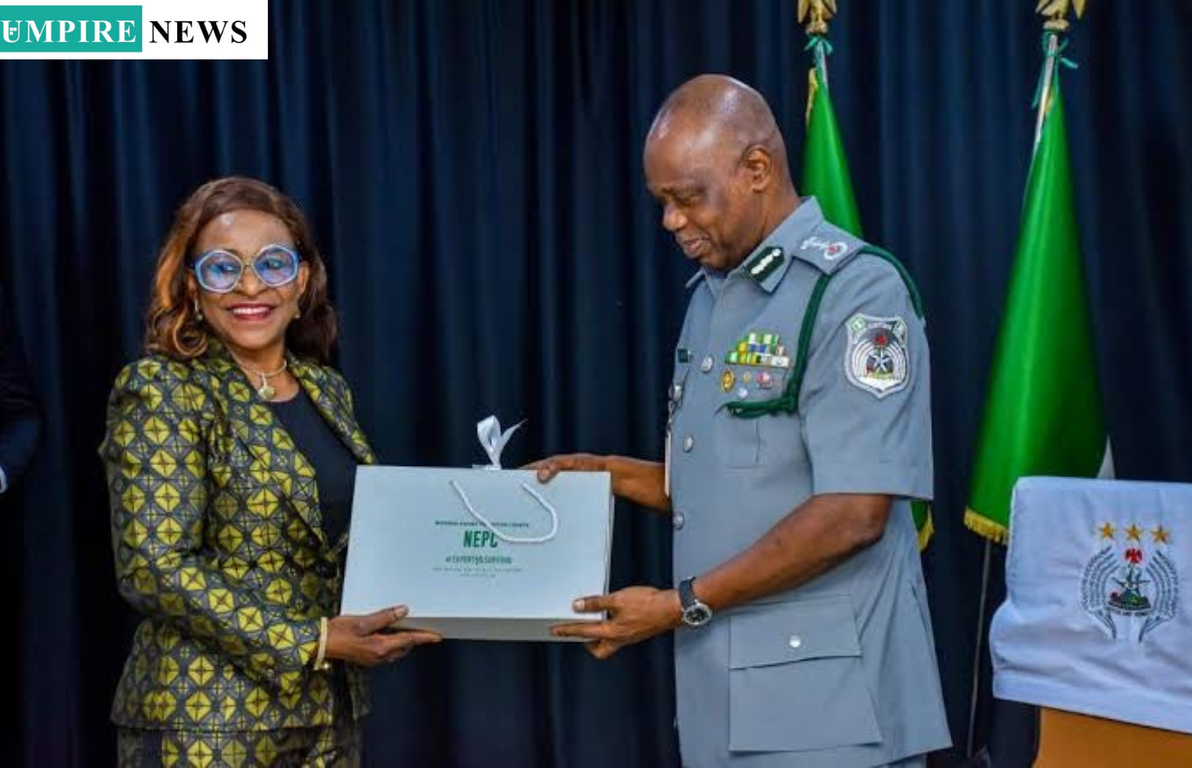The Nigerian Customs Service (NCS) and the Nigerian Export Promotion Council (NEPC) have reaffirmed their commitment to maintaining zero duties on exported goods, as well as implementing digital technology to streamline and reduce the time it takes for goods to be exported.
This collaborative effort, aimed at improving the efficiency and competitiveness of Nigeria’s export sector, was announced during the recently concluded MSMEs conference, themed “GROW Nigeria: Sustaining a Digital and Innovative Driven Economy,” which took place in Abuja over the weekend.
During the conference, the Comptroller General of Customs, Adewale Bashir Adeniyi, and the Executive Director of NEPC, Nonye Ayeni, both participated as panelists, shedding light on the ongoing initiatives to boost the ease of doing business for exporters.
These initiatives are part of a broader strategy to enhance Nigeria’s economic landscape through innovation, digital transformation, and policy reforms designed to promote growth in the export sector.
The NEPC emphasized that a shift in mindset among Micro, Small, and Medium Enterprises (MSMEs) is critical to unlocking Nigeria’s export potential.

Nonye Ayeni, the Executive Director of the council, noted that although MSMEs constitute 96% of all businesses in Nigeria, they contribute a mere 7% to the nation’s export volume.
This stark contrast highlights the need for businesses within this sector to scale up their operations and engage more deeply in global trade opportunities.
Nonye stated, “A significant part of the challenge facing Nigerian MSMEs in the export space is their lack of capacity and expertise as many Nigerian businesses lack the skills to meet international standards, leading to product rejections and discouraging further participation in export markets.”
She further explained that this deficiency in skills and knowledge creates a bottleneck for Nigerian businesses looking to expand globally.
To address these challenges, NEPC is working tirelessly to ensure that MSMEs are well-versed in international trade rules and equipped to meet global standards. Nonye elaborated that the council is focusing on improving the capacity of businesses in areas such as product packaging, labeling, and compliance with agricultural practices.
These efforts are aimed at reducing the frequency of product rejections due to non-compliance with international regulations, which has historically been a significant barrier for Nigerian exporters.
Moreover, the NEPC is collaborating closely with the Nigerian Customs Service to minimize delays in the clearance of exported goods, particularly for perishable items that require quick transit to prevent spoilage.
Nonye emphasized that timely clearance of goods is essential for maintaining the quality of exports and ensuring that Nigerian products can compete effectively in global markets.
On the part of the Nigerian Customs Service, Comptroller General Adewale Bashir Adeniyi reinforced the role of MSMEs in driving economic growth and development.

He pointed to examples from countries like China, where MSMEs contribute up to 60% of the Gross Domestic Product (GDP) and 70% of technological innovation, underscoring the importance of empowering small businesses in Nigeria to achieve similar success.
Adeniyi also highlighted that the customs service is committed to ensuring that exported goods from Nigeria continue to enjoy zero duties, a policy designed to encourage more businesses to participate in the export market.
He explained that maintaining zero duties on exported products helps to reduce the cost burden on businesses and enhances their ability to compete internationally.
This is particularly crucial for MSMEs, which often operate with limited resources and face stiff competition in the global marketplace.
“What the customs is trying to do now is to facilitate the clearance of exported goods and also reduce the time taken to clear goods exported to other countries,” Adeniyi said.
This move is part of the broader reforms being implemented by the NCS to modernize customs procedures, streamline operations, and adopt technology-driven solutions that will reduce bureaucratic delays and inefficiencies at the nation’s ports.
However, Adeniyi was quick to clarify that while customs duties on exported goods remain at zero, the duties on imported goods are governed by a fixed rate.
He noted that “When you import, the rate is already set, either for a year or for the five-year period that is provided under the Customs and Excise Tariff Regime.” This ensures that businesses importing goods into Nigeria are aware of their obligations and can plan their costs accordingly.
The collaboration between the Nigerian Customs Service and the NEPC represents a significant step towards creating a more business-friendly environment for Nigerian exporters.
By leveraging digital technology and maintaining favorable policies such as zero duties on exports, both agencies aim to bolster the country’s export sector, enhance global competitiveness, and support the growth of MSMEs.
As Nigeria continues to face both global and domestic economic challenges, the efforts of the NCS and NEPC in reducing export bottlenecks and fostering innovation within the MSME sector are poised to play a critical role in shaping the future of the nation’s economy.
The conference highlighted the importance of public-private partnerships, capacity building, and policy alignment in driving sustainable economic growth.
Through these initiatives, the government hopes to create an enabling environment where Nigerian businesses can thrive on the global stage, contributing more significantly to national export volumes and, ultimately, economic prosperity.
































